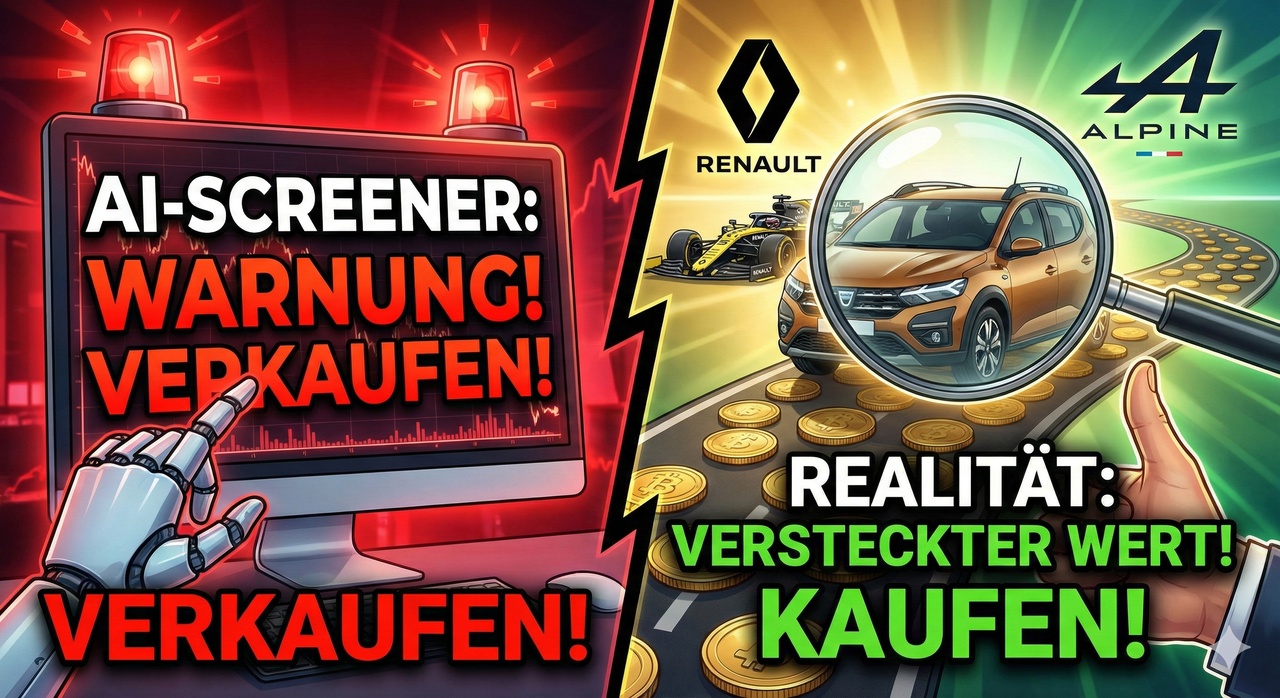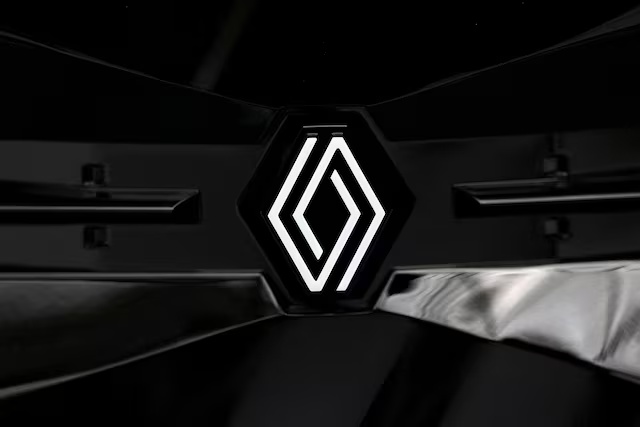Everyone is probably familiar with financial news and screening algorithms. Much of this is highly automated. In most cases, some key figures are calculated and text modules are generated.
If you run Renault through a standard screener or (unconsciously) read AI-generated news, all the warning lights flash red.
The bot sees: Altman Z-score of 0.45.
The verdict: "Acute risk of insolvency in 12 months."
What is so wrong with this model or judgment?
The bot does not differentiate between business models and group structures. The bot takes the consolidated balance sheet and sees gigantic liabilities, but then "forgets" that Renault has its own bank, RCI Banque. For a bank, liabilities (customer deposits) are working capital.
Liabilities and receivables are therefore massively inflated.
Critical readers are now rightly asking themselves: "BMW and VW also have banks, why aren't they suffering like this?"
The answer lies in the ratio of stock market value to bank liabilities.
BMW has around €135 billion in the banking division with a stock market value of €46 billion.
= A factor of 2.9x. The screeners can still cope with that.
->Altman Z 1.2 = fewer nasty headlines
Renault has around € 66 billion in the banking division (Mobilize), but is only worth € 11 billion on the stock market.
= Factor 6.0x.
-> Altman Z 0.45 = more nasty headlines
If you exclude the bank ("Industrial Net Debt"), the score jumps to 2.87. This means: almost zero risk for Peite in the next 12 months.
So here we have a share that is priced like a bankruptcy candidate but has the balance sheet figures of a healthy industrial player.
The peer comparison: Renault vs. Germany
The market loves(E) German manufacturers for their margins. (VW ehem) The market respects BMW and Mercedes for quality. But Renault is treated like the "sick man of Europe".
The shocker for many now:
Dacia is currently THE most profitable large OEM car manufacturer in Europe, in terms of margin they are even ahead of Tesla.
Dacia is - a pure cash machine.
12% margin on every vehicle sold:
- No discount battles like Tesla
- Proven technology (low R&D costs).
- Margin that the VW core brand can only dream of.
Dacia's strategy and momentum is simply extremely good. Hold the Sandero 1 from 2010, the Sandero 2 from 2018 and the Sandero 3 from 2021 next to each other and do the same with the Golf.
Quality and technology leaps and bounds.
All at almost the same price.
How was that achieved?
Despite smiling looks from competing manufacturers, alternative but PROVEN technologies were used. A wonderful example is the use of fuels such as LPG. The cars thus contribute to the fleet average required by the EU. (LPG is low in Co2) while the vehicles are also BUILT this way (cough cough VW recently paid fines because EV sales were poor).
Back to Renault: According to some analyses, Dacia alone is already worth 12-15 billion.
However, Renault's current market cap is only around €11 billion.
Additionally included are for example:
Alpine: A growing sports car brand + F1 team (franchise value increases due to US boom). Value: > 1 billion €.
Renault Brand itself: The core business.
Nissan stake: Still assets in place.
The calculation that even with the acute structural risk in the automotive industry, the entire conglomerate is only worth 11 billion:
does not add up in my opinion.
For this current share price of ~40€ to be justified, one would have to believe that the Renault brand (Clio, Austral, R5, E-division) will burn burn 12.6 billion euros or generate destruction value.
But these cars are being sold at record levels.
therefore: buy what you see! According to Peter Lynch!
In my opinion, anyone who buys Renault today pays less than the fair value of Dacia and gets Renault, Alpine and the F1 team for FREE. This is no longer just a "complexity discount" because algorithms can't value individual parts, but a complete mispricing.
BUY up to €40: Here the margin of safety is so absurdly high that the downside is minimal. You buy assets for 50 cents on the euro.
⏸️ HOLD up to €50: The fair value is approaching, the undervaluation is decreasing.
❌ SELL from €60: Here the inefficiency would be corrected slowly but surely. From here, macroeconomic risks (China etc.) again determine the price.
Don't be fooled by generated headlines. Factor out the bank.
Have you noticed this "screening error" in other companies with captive finance divisions (e.g. US carmakers)? Or do you think the market is right and Dacia is worthless? Write it in.



















